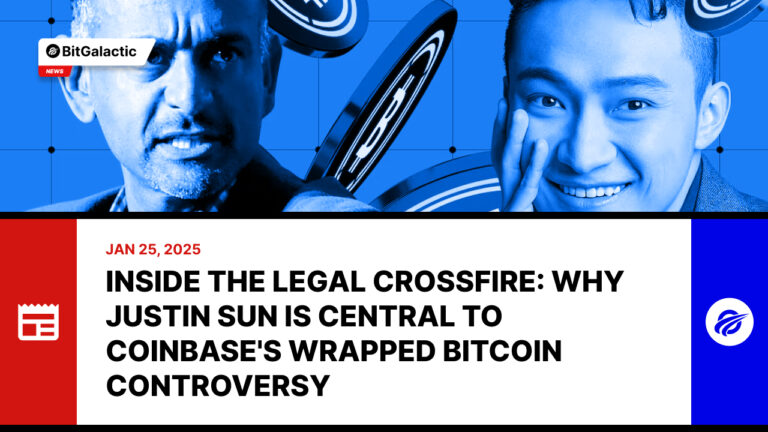Inside the Legal Crossfire: Why Justin Sun is Central to Coinbase's Wrapped Bitcoin Controversy.
An Unexpected Delisting
A few months back, Coinbase made a surprising move that sent ripples through the crypto world: it delisted wrapped Bitcoin (wBTC), a tokenized version of Bitcoin that runs on Ethereum. This decision raised eyebrows, as wBTC had been a staple on Coinbase’s platform since 2020.
The abrupt removal wasn’t without reason. Coinbase, in court filings, pointed fingers at Justin Sun—the billionaire founder of the Tron blockchain—as a potential risk. According to Coinbase, Sun’s alleged involvement with wBTC through BiT Global raised concerns about “safety and legality.”
“Justin Sun has a well-documented history of alleged financial misconduct,” Coinbase’s lawyers stated, adding that his undefined role in wBTC’s ecosystem violated their vetting standards.
BiT Global Fights Back
BiT Global, a Hong Kong-based custodian that partnered with Sun and BitGo to manage wBTC, didn’t take this lightly. On December 13, the company filed a lawsuit in a U.S. federal court, accusing Coinbase of abusing its market power.
BiT Global claimed Coinbase delisted wBTC to promote its own competing product, cbBTC. They further argued this move caused wBTC’s market supply to drop by 5%, equating to losses in the hundreds of millions of dollars.
In a dramatic twist, BiT Global invoked the Sherman Antitrust Act—a law dating back to the Gilded Age—marking the first time it has been used in a crypto-related lawsuit.
Coinbase’s Defense: Market Standards or Market Power?
Coinbase pushed back, claiming the delisting was purely about maintaining its listing standards and protecting users from risks tied to Sun’s involvement. “It is common sense that Coinbase should be able to enforce its standards,” the company asserted.
But BiT Global countered by pointing to Coinbase’s decision to list volatile memecoins like PEPE and MOG, arguing these decisions undermined the platform’s safety claims.
“This isn’t about standards—it’s about eliminating competition,” BiT Global attorneys said, accusing Coinbase of targeting wBTC to push its own cbBTC into the market.
Justin Sun: The Billionaire in the Background
Although not a party to the lawsuit, Sun remains a key figure in the controversy. Known for his audacious moves—like paying $6.2 million for a conceptual banana art piece he later ate—Sun’s involvement has sparked broader discussions about his influence in crypto.
Coinbase alleges Sun might have “effective control” over wBTC via BiT Global, citing concerns echoed by DeFi platforms like Maker. Yet, Sun himself has downplayed his role, tweeting, “I’m not directly involved in this case, just a bit curious.”
What’s Next for This Landmark Case?
Crypto lawyers and industry watchers are closely following this unprecedented case. If BiT Global can survive Coinbase’s motion to dismiss, it could force Coinbase to reveal how it decides which tokens to list or delist—a potential game-changer for transparency in the crypto exchange space.
From BitGalactic’s perspective, this case highlights a broader issue: the growing centralization of power in a supposedly decentralized industry. While crypto aims to democratize finance, major players like Coinbase and Binance wield significant control.
“Wrapped Bitcoin isn’t just a token—it’s a symbol of the battle between innovation and market dominance,” BitGalactic analysts noted.
As the lawsuit unfolds, both sides may have to open their books, including depositions from key players like Coinbase executives and possibly Justin Sun himself. Whether this case becomes a turning point for antitrust in crypto remains to be seen, but one thing is certain: the entire industry is watching.
Share this post


